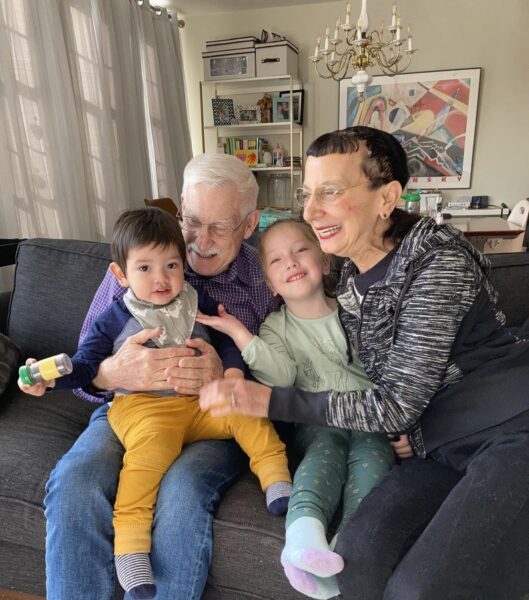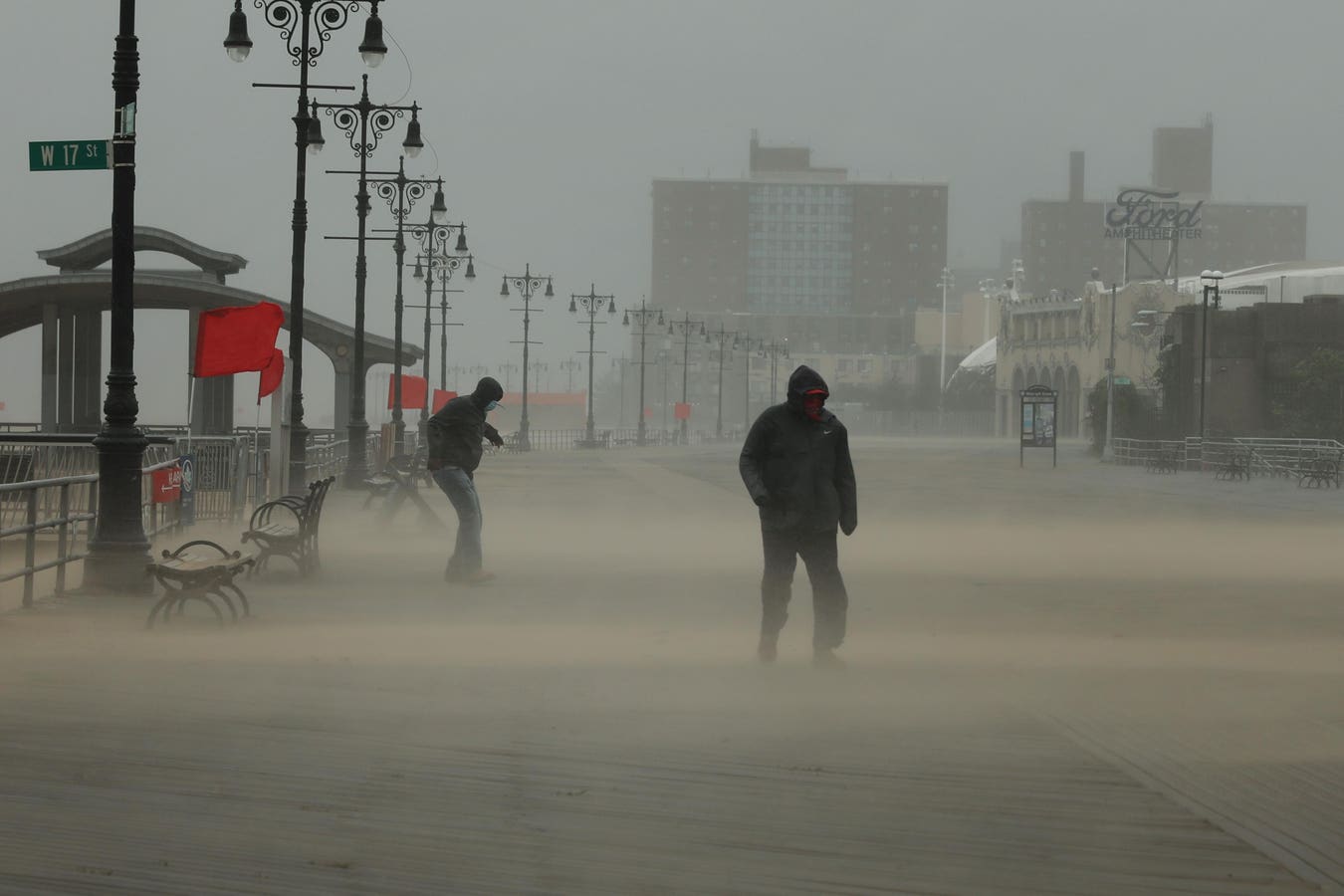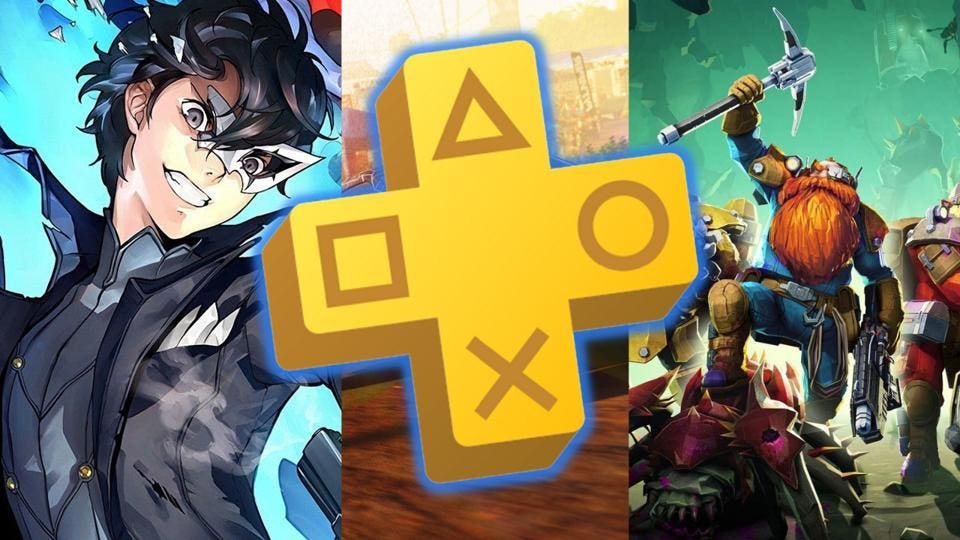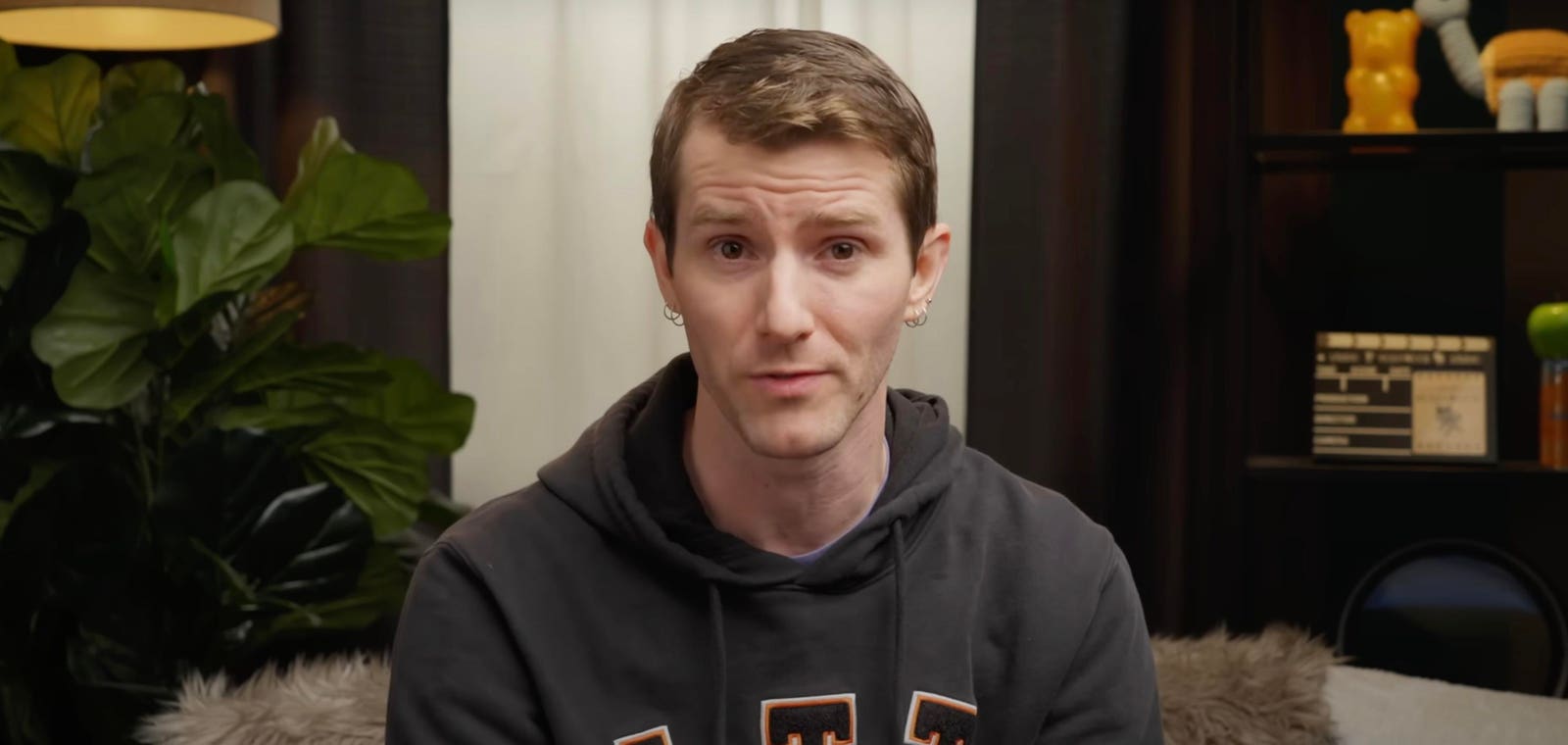Teri Mills, her husband, and their grandkids.
Teri Mills
Teri Mills still vividly remembers the paper cups with the sugar cubes.
In the U.S. in the early 1960s, one way to administer the oral polio vaccine was dropping it onto sugar. Mills was one of the many children who queued up around her school for this sweet lifesaver. “My mom, I remember she wept with relief. And they could not line us up fast to get those vaccines,” Mills reminisces. “There was a lot of joy.”
It was joyful because the little sugar cubes offered protection against a life-altering, life-threatening disease. By the middle of the 20th century, polio was paralyzing or killing half a million people a year. So the creation of a vaccine was a longed-for breakthrough. The effects of mass administration of polio vaccines were dramatic: cases plummeted quickly, and iron lungs became a relic in the U.S.
But for many people born after polio ceased to feel like a threat, this can seem very abstract. “A lot of people who are currently in the decision-making stage of their life for their kids in particular are not people who ever saw the effects of polio,” notes Tori Espensen, a media training manager at SciLine, part of the American Association for the Advancement of Science.
This is a pattern seen with other vaccines that become, in a way, a victim of their own success, Espensen says: “Once you get far enough away from a disease being prevalent, it’s really easy for people to say, ‘Oh, I don’t need to vaccinate for that because it’s not a big deal,’ when in fact the reason it’s not a big deal is because of vaccinations.”
A new advocacy organization called Grandparents for Vaccines is trying to help bridge this gap between a generation that saw firsthand the transformative power of vaccines, and a later generation that may take vaccines for granted or even see them as a threat. “Our kids are choosing not to vaccinate our grandkids, and that’s the problem,” Mills says of the generational gap that can arise.
Mills, a retired nurse and nursing educator in Oregon, is one of a handful of volunteers who launched Grandparents for Vaccines in September. She’s now sharing her memories of vaccination and the diseases they’ve helped curb, while also encouraging others to share their own. To Mills, the rationale for the group is simple: “Everybody knows that there’s nothing grandparents cherish more than their grandchildren.”
It may take years of hearing from trusted people about the benefits of vaccines before those messages really get absorbed. “While scientific expert voices are critical on this subject, it’s also really important to recognize that audiences often pay more attention to the trustworthiness of a source,” Espensen says. Mills believes that such trusted sources can include grandparents (though she says that Grandparents for Vaccines is open not just to grandparents, but to anyone who likes kids).
Sharing A Meningitis Story
Lesley Thompson, who’s also sharing her story as part of Grandparents for Vaccines, leverages the trust she’s built up with friends and family. But this is in combination with expert information. The retired 4th-grade teacher in Colorado always encourages people to talk to healthcare professionals, rather than dispensing medical advice herself or just lecturing them to get vaccinated. “I don’t think you change minds that way. I think you change minds by telling your own experiences.”
Her story is a tragic one: in 2017, her two-year-old grandson Kale came down with flu-like symptoms. It wasn’t immediately obvious that he’d developed meningitis, a swelling of the membranes protecting the brain and spinal cord, which is especially dangerous in its bacterial form. “We went through five days of hell” before Kale passed away, Thompson says.
Thompson has dealt with the grief of losing her grandson by helping others. She’s thrown herself into advocacy and awareness raising about vaccination, whether it’s on her Facebook page, at Sierra’s Race Against Meningitis, or in the halls of the Colorado legislature. Meningitis vaccination is a powerful touchpoint for her family because there are two vaccines available for different kinds of bacterial meningitis. In the U.S. these are generally recommended for children starting at 11 years old. A doctor told Thompson that “if all 11- and 12-year-olds were to get it when it’s recommended, then there would be herd immunity in the United States, and Kale would have been protected.”
Pia Pannaraj, a professor of pediatrics at UC San Diego, explains how this would work: “the more people that are protected against the disease, the less people there are to spread the disease. So as the disease is trying to go from one person to the next, it hits a roadblock with that person who’s vaccinated and then just stops there.”
In the U.S., MenACWY vaccination is recommended for children aged 11–12, while MenB is advised for 16–18-year-olds (and older). The disease most commonly infects children and young adults in these age groups. Pannaraj says that side effects of these vaccines are limited, whereas “the benefit is huge: preventing a disease that causes inflammation in the brain and can lead to significant damage down the road.”
Meningitis brochure.
Sierra’s Race Against Meningitis
Finding Reliable Information
Thankfully, Thompson says, she hasn’t been attacked personally by anti-vaccine activists. Even more, “I know little Kale’s story has changed lives,” such as when a Facebook post of hers prompted a group of high-school students to get vaccinated against meningitis B before going off to college dorms, which can quickly become a breeding ground for the infection. She’s moved that her little grandson continues to shape others’ lives in this way.
Though she builds connections on Facebook, Thompson warns people that not everything on social media is accurate. And the pediatrician Pannaraj cautions that this year, not all U.S. government sources are fully backed up by science. So she advises families to consult the American Academy of Pediatrics: “The AAP has always been a source for pediatricians. It’s where we as pediatricians get all of our information. And so families can trust that as well.”
This is important because, Pannaraj acknowledges, “unfortunately, in the current situation where there’s more focus on politics than on health, it becomes harder to know where to look. But the AAP schedule is solid in that it’s still the experts making all of those recommendations.”
From pediatricians to grandparents who have experienced vaccine-preventable diseases, informed discussion remains crucial to keeping Americans safe. Mills, of Grandparents for Vaccines, wants to scale up these informed discussions. “We want these conversations to take place in every living room in America,” Mills declares.









